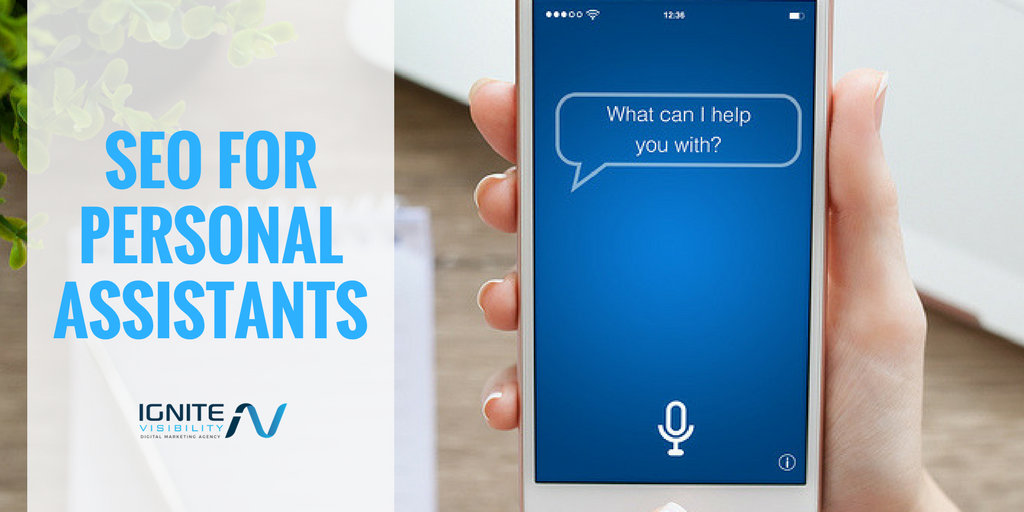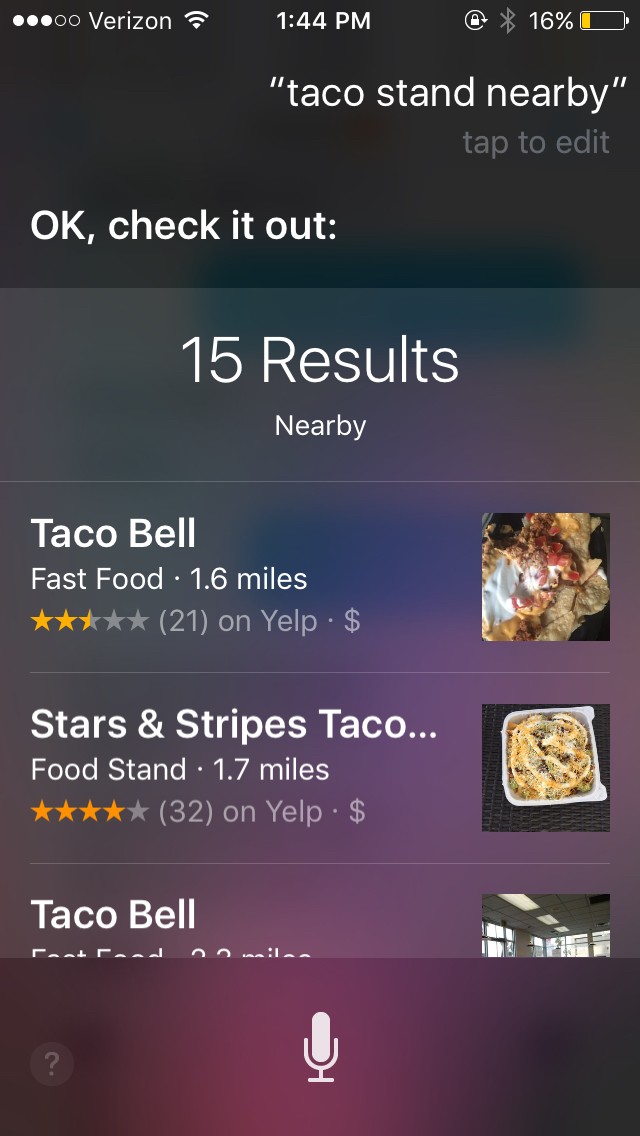The use of Personal Assistants as a tool for search is on the rise and represents a new frontier for SEO. In this blog, we discuss why Personal Assistant Search Optimization (PASO) is vital to the success of your company.

How to Optimize for Personal Assistants, the New Frontier of SEO
“Hey Siri, find a great gourmet restaurant near me.”
That statement, spoken out loud, is an example of a modern-day search query.
People are increasingly turning to personal assistants (PAs) like the “Fab Four” (Siri, Cortana, Google Assistant, and Alexa) to get the information they need. That’s why SEO professionals should optimize websites accordingly.
Personal Assistant Search Optimization (PASO) represents a new frontier of SEO. Strategists who remain stuck in “old school” optimization are doing their clients a disservice.
PAs: Popular Because They’re Portable
Why is it that so many people are leaning on PAs for information? One reason is because they’re portable.
Think about it: Siri and Google Assistant are on smartphones. Since people generally take their phones with them wherever they go, it’s easy to use the embedded assistant.

Personal Assistants | Siri vs Google Assistant
Siri has been part of the Apple iOS platform for years now. Likewise, Google Assistant is available on both Android phones and Android Wear.
In other words, the answer to a question is often times just a question away. Users just need to get the attention of the assistant (“Hey Siri”), state their query, and wait for the answer.
They’re Also in the Home
Another reason that personal assistants are popular: they’re in the home.
They’re small devices that people place on a family room table or a shelf. They blend in nicely.
Heck, Alexa looks like a piece of home decor.
More importantly, though, home-based personal assistants stand at the beck and call of their users. They just wait for a question and then provide the answer.
People can ask that question from the comfort of their own La-Z-Boy chair or on their way to the kitchen for a snack. There’s no need to sit in front of a keyboard and type out a search query on Google.
Search engines are popular because they make it easy to obtain information. Personal assistants make that task even easier.
Tailor-Fit Responses
People also gravitate to personal assistants because search results are tailored to their own needs. That’s for two reasons.
First, the results are often location-specific. That’s because assistants are part of smartphone technology, which is location-aware.
Second, personal assistants use machine learning to make sure that their responses are in line with user expectations. In other words, they learn from experience so they can give their users the best answers.
Fewer Results
It’s often the case that people who Google a search term at the keyboard find millions of results. That doesn’t happen with PAs.
Users who rely on an assistant for information typically receive between one and four results. They don’t have to sift through pages and pages of data to find just what they’re looking for.
I once asked Google Assistant where to go skiing. The answer I got was a link to a US News & World Report article entitled “10 Best Ski Destinations.”
It’s likely that US News & World Report got a lot of traffic from that query.
That example demonstrates the opportunity that exists for SEOs who practice PASO. If they succeed in optimizing for PAs, they can do a lot to increase the visibility of their clients.
On the other hand, the fact that assistants return limited results also presents a challenge. Websites need to rank at the very top or they won’t get mentioned at all.
For normal search engine optimization efforts, ranking #5 might be good enough. That’s not the case with PASO.
Better Click-Through Rates
There’s another reason to embrace PASO, and it’s a great one. Personal assistant results often have high click-through rates (CTRs).
I once asked Google Assistant the following question: “How do I translate a YouTube video into a new language?” Only one result came back.
It was an article on my own website: Ignite Visibility.
How does the CTR for that result stack up against other articles on my site? It’s a whopping 187% higher than the average.
Also, as we’ve seen, personal assistants tend to only return a few results. So it makes sense that the CTR of those results would be higher than if they were returned with thousands of other results.
Where Do Personal Assistants Get Their Information?
So what sources do personal assistants use as a reference to provide their users with answers? It depends.
For starters, different assistants might use different libraries. For example, users who ask Siri a question that involves a business transaction can expect their response to come from one of the following sources:

Siri uses Yelp for questions regarding business transactions and restaurant recommendations.
- CitySearch
- OpenTable
- Yahoo! Local
- Yelp
- ReserveTravel
Of course, the exact source that Siri would use also depends on the nature of the question. For example, Siri would only use OpenTable only for a user interested in making a reservation at a restaurant.
If a user is looking to buy tickets for a concert or other upcoming event, Siri would likely use one of the following sources:
- StubHub
- Eventful
- LiveKick
For users who are looking for detailed information about movies, Siri would probably draw from the following sources:
- Rotten Tomatoes
- Movie Tickets
Users who are just looking for answers to questions (e.g., “what’s a good tea for weight loss?”) can expect Siri to get its answer from these sources:

Siri searches will pull answers and results from Bing Answers
- Wolfram Alpha
- Bing Answers
- Evi
Digital strategists need to know which sources personal assistants use to get their answers. That way, they know where to list their clients so that they’re included in the results.
For example, an SEO specialist who’s working with a local business would want to make sure that it’s listed on Yelp. Otherwise, it’s not likely that the business would be included in any personal assistant replies. In the case of Alexa, you can also now teach it skills. Which has an impact on results.
Instant Answers
Instant Answers also often return information inside of personal assistants. Getting your website to show an Instant Answer in Google is now very possible with the right strategy. Watch a video on this below.
An Everlasting Learning Process
Like so many other aspects of SEO, PASO is an ongoing learning process. It’s almost certainly the case that personal assistants will “evolve” to derive information from additional resources. Digital marketers need to be aware of those changes and adapt their strategies accordingly.
SEOs who cling to outdated methods will find themselves left behind by their competitors. Those who evolve will succeed.